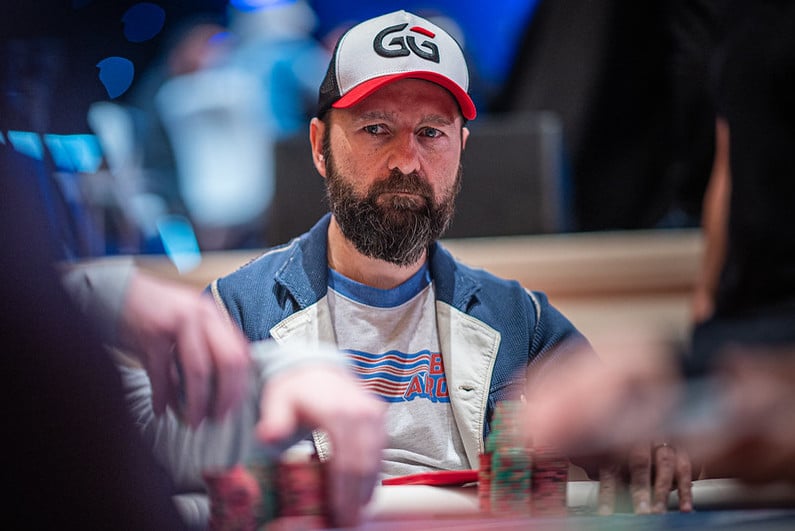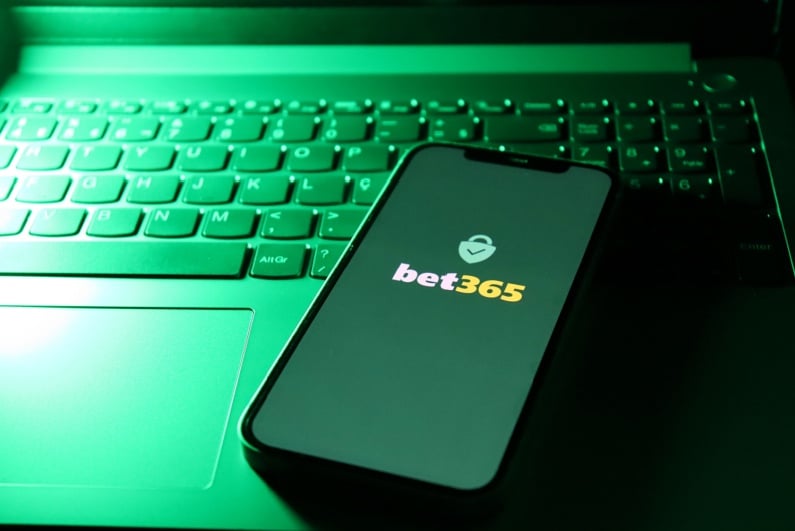Negreanu’s deleted tweet
Earlier today, outspoken GGPoker ambassador Daniel Negreanu deleted a tweet that he had published hours earlier. The reasons for the post’s removal are unclear at this time. Did he succumb to pressure from those who found his comment disgusting? Did his sponsor make him do it? It’s certainly hard to believe that the free speech and personal responsibility advocate would kowtow to forces outside himself. To do so would be a victory for those lefty woke liberals that he hates.
The thing is, it’s equally unfathomable that deleting the tweet is his way of acknowledging the tastelessness of the “joke” contained within. After all, it’s not his problem if someone is offended. That would be that particular snowflake’s fault for allowing his “joke” to trigger them, right?
Maybe he just had the realization that politics should stay out of poker, or, at the very least, that cruel brand of politics that dehumanizes the other side, that makes light of death, starvation, and homelessness, that finds humor in other people’s misery. A screenshot of the deleted tweet still exists:
Uncomfortable bedfellows
Sports and politics are uncomfortable bedfellows. That is not to say that they must remain separate. It’s more to say that there is a sort of purity to athletic prowess, an idealism or thing-in-itself-ness around the type of physicality or intelligence that creates sublime moments of sporting perfection. That is, of course, a romantic notion because sports, even in their most inspirational moments, do not exist in a vacuum.
prompting the then-president Donald Trump to call him a “son of a bitch”
In 2016, San Francisco 49ers quarterback Colin Kaepernick took a knee during the national anthem to protest racial injustice and police brutality, prompting the then-president Donald Trump to call him a “son of a bitch” and suggest that kneelers had no place in America. It was not the first nor the last time that sports and politics were intertwined with an athlete using their platform to express a political view, foster social change, or reflect the broader societal landscape.
At the 1968 Olympic Games, Tommie Smith and John Carlos raised their black-gloved fists aloft on the podium. That was a year after Muhammad Ali was convicted for refusing the Vietnam draft. Go further back, and there is no doubt that Jesse Owens’ four gold medals at the 1936 Berlin Olympics took on a greater significance, simultaneously undermining Hitler’s racist Nazi ideology and shining a light on the pervasive Jim Crow laws in America.
From iconic moments that challenged unjust or oppressive ideologies to debates surrounding gender equality, racial biases, and LGBTQ+ rights to gestures of solidarity with the plight of the innocent victims of war, the intersection of sports and politics will always be contentious. Sports might be neutral, but the people who play them are not. It is the same in the world of mind sports like poker.
Bonomo’s keffiyeh
It used to be the case that we didn’t talk politics at the poker table. To do so was considered uncouth at best and unnecessarily provocative at worst. That is not so anymore in what is now a very polarized political landscape. Years of allowing the algorithm to nudge us incrementally in one direction or another has fractured society and left us with less shared reality, let alone common ground.
do not allow garments deemed controversial or political in nature”
In December, poker pro Justin Bonomo’s wearing of a keffiyeh in the $25,000 buy-in GGPoker WSOP Super Main Event turned into a controversy when he was threatened with disqualification unless he removed it while at the feature or final table. The WSOP issued a statement, claiming that it was “simply a matter of broadcast clearance” and that the “future distribution platforms for the Super Main Event do not allow garments deemed controversial or political in nature.”
This claim would have been more credible had the organizer not run a charity tournament a few days earlier for the widows and orphans of fallen Israeli Defense Force soldiers. That was unquestionably a much more significant political gesture than one person’s wearing of a head scarf woven in Palestine. Nonetheless, Bonomo was over a barrel, understandably unwilling to sacrifice seven figures of equity. He took his keffiyeh off.
Boatman’s bracelet
In the days that followed, the WSOP received rightful criticism for their blatant hypocrisy. One such critic was PokerStars ambassador and poker legend Barny Boatman, who tried to restore some balance with a pitch-perfect and heartfelt message:
I followed up with Boatman to find out what happened and was delighted to hear that his bracelet was bought for $12,000, a princely sum that was matched by Bonomo. There were lots of other donations, too, including a generous one from Boatman himself, which brought the total to around $40,000. It felt as though Boatman had managed to do the unthinkable. It was like witnessing one of those singular sporting moments as he took a highly volatile and emotionally charged controversy and deftly navigated it, and all of us, to a respectful, respectable conclusion.
Of course, the underlying situation in Palestine remains an unfolding human tragedy of biblical proportions, but it seemed like, from the poker community’s perspective, a line was drawn under its own particular sub-conflict. That was until yesterday when Negreanu’s disgusting tweet re-ignited those same tensions.




